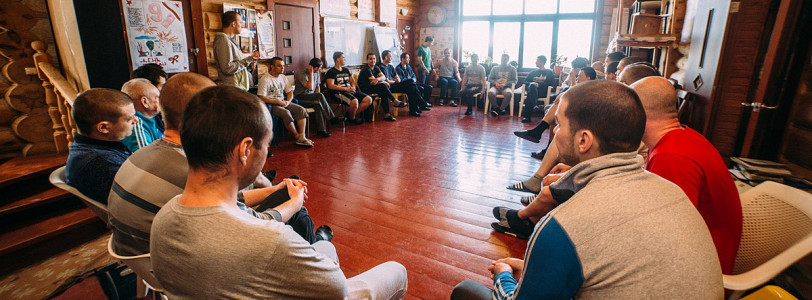It’s a well-worn and tired excuse: “They’ll only spend it on drugs and alcohol”. An excuse that people often use to justify the fact that they refrain from giving money to homeless people. It’s used to assuage their guilt at their stinginess, or (to give them the benefit of the doubt) out of some slightly muddled attempt to not cause harm.
The automatic association between homeless people and addiction is stigmatic and harmful. But I would argue that this is because there is such a stigma against addiction in itself, which is arguably why the association is able to perpetuate so much harm.
The National Institute on Drug Abuse notes that although “medicine long ago reached a consensus that addiction is a complex brain disorder with behavioral components”, people suffering from addiction “continue to be blamed for their disease” and “the public and even many in healthcare and the justice system continue to view it as a result of moral weakness and flawed character.”
This stigma against addiction mirrors that of homelessness, and is only compounded when an individual is experiencing both. There is the idea that the person is somehow to blame for their circumstances, that it has been brought about solely by their poor decisions or bad attitude. This belief denies and ignores the factors that contribute to both addiction and homelessness, factors that are largely out of the individual’s hands and often ingrained into societal and legal systems.
However, this is not to deny that there is a connection between homelessness and addiction, but the relationship between these circumstances needs to be interrogated deeper than a simplified and stigmatised view. Crisis found that two thirds of homeless people cite drug or alcohol use as one of the reasons they became homeless and that people who use drugs were seven times more likely to be homeless than those who don’t.
It is also true that drug-related casualties affect homeless people at a disproportionate rate to housed people, a government report by the ACMD from 2019 found that in 2017 32% of all deaths amongst homeless people were from drug poisoning, compared to 1% of deaths amongst housed people. However, this is the result of limited access to support and help for addiction – the report also found that people who are homeless and experiencing drug addiction are more at risk in their personal safety and less socially supported, and that “the needs of people who are homeless, particularly rough sleepers, are not well met by mainstream benefits, health and social care and some drug services”.
Therein lies the heart of the problem. People suffering from addiction – housed or homeless – often find it hard to access support and treatment for addiction, but that difficulty increases significantly for those who are homeless. It is also often this difficulty in accessing support that can be part of what may cause a housed person to become homeless.
Addiction Helper lays out some of the NHS treatments available to people, but notes that the options are limited, “this is due to lack of government funding and also lack of understanding around which addiction treatments work best.” In their advice they note that some options are not adequately specialised, include waiting lists, and that accessing rehab through the NHS is incredibly difficult.
Help4Addiction also notes that if you are able to eventually access rehab through the NHS, it will not be residential, and if you feel that you need the seclusion and privacy of residential rehab you will likely have to fork out for private rehab, which for many people is just not an option.
But all this goes to show that it’s not necessarily addiction in itself that perpetuates homelessness – I would argue that it is the lack of access to support around addiction that perpetuates homelessness more so than addiction itself. And this lack of access is due to lack of government funding, which is likely due to the stigmatised view of addiction.
It also goes to show that the connection between addiction and homelessness is much more nuanced than just statistics about the prevalence of addiction amongst homeless people. Statistics, and often people themselves, fail to recognize that this connection is drawn through mental health issues, flawed justice systems, under-funded support and healthcare, and the actions of others that are symptomatic of general negative assumptions and stereotypes in the public consciousness about addiction.
Part of this overlooked nuance is what causes and exacerbates addiction, and there is also an unwillingness to tackle the roots of addiction instead of just the consequences of it. In January the government announced a £148million investment into tackling drug use and drug related crime, however, not a pound of that is into mental health facilities or community organisations that deliver a tailored and preventative approach to drug issues.
The £80million pounds of it that are being invested into drug treatment services are targeted at offenders of drug related crimes. Not only does this exclude a number of people suffering from addiction, but this focus on drug issues as being inherently tied to crime also contributes to addiction stigma. Drug related crime may exist, but the framing of addicts or any drug users as inherently criminal is unjust. This framing instantly creates distrust towards the drug user, and permanently tarnishes their reputation in society. An addict who has lost their support systems of friends and family due to their association with perceived ‘criminal activities’ is more at risk of becoming homeless.
In many ways, the idea of ‘drug related crime’ is unjust in itself, not only for its danger of association. Possession or dealing, no matter how small scale, can get you a criminal record which has to be declared on job and housing applications, no doubt negatively affecting your success, increasing the risk that you may become homeless.
The ACMD 2019 report found that the key to treating addicts who were homeless was to first find them shelter and accommodation. How can people expect to have fair access to accommodation in a culture that by rote sees them and treats them as criminals? Even without a criminal record, if someone visually might have the appearance of “looking like an addict”, they are likely to be unfairly judged by prospective employers or landlords. This is also an issue for people who may “look homeless”.
This leads back to the ignorance of the blame for homelessness or addiction being put upon the person suffering from it. There is a perception that the opportunities and help are out there, but that both homeless people and addicts just simply can’t be bothered to try and access them. Not only is this perception a load of insensitive nonsense but it also negates the fact that a lot of homeless people and addicts are unable to access opportunities, not due to their own failings, but due to other people’s judgements and stereotyped perceptions of them.
It is particularly galling then that the ACMD’s advice from 2019 and other reports highlighting the need for investment into proper treatment and prevention seem to have had no bearing on the government’s recent crime-orientated drug treatment funding. The information on what will actually help is there and so is the advice on how to implement it and yet it is still ignored. As with many stigmas, the stigma against homelessness and the stigma against addiction are allowed to continue, not because people cannot help but be uninformed, but because they can’t be bothered to become informed.
What de-stigmatisation takes is education and sympathy, to learn about the people around you and to want to learn about them. But for some unknown reason, people seem to be happy to continue in their stereotyped and unfair perceptions of homeless people and addicts.
To put blame where blame is due, effectively tackling addiction, and as part of that, homelessness, is largely in the hands of the government. In part 2 of her review of drugs, Dame Carol Black has advised the government that it faces “an unavoidable choice: invest in tackling the problem or keep paying for the consequences.” She has also highlighted that, “to achieve and sustain recovery people need, alongside treatment, somewhere safe to live and something meaningful to do (a job, education or training).” She also reiterated the fact that addiction is a medical condition and should be treated as such, that there must be increased funding into support, treatment, employment, and housing, and that the legal system which funnels addicts into prisons is drastically worsening the situation.
But whilst we wait with bated breath to see if the government will actually make an informed and sympathetic decision for once, what can you personally do? Well, let’s go back to the start. If you are considering giving money to a homeless person and it occurs to you that they could use it to buy drugs or alcohol, what next? Well frankly, the best thing would be to mind your business. If a person has been failed by the system to the point that they don’t have a home anymore maybe they deserve a drink huh? Or maybe they won’t spend it on that – maybe it will help them pay for accommodation for the night, or for food, or for a necessity that they may need. You don’t know, and you don’t need to know. If you have money to spare and the only thing that is stopping you from giving it to a person who needs your help is the hypothetical possibility that they might use it on something that you personally deem to be immoral or criminal then you’re incredibly cynical. Maybe be kind instead next time.









0 Comments